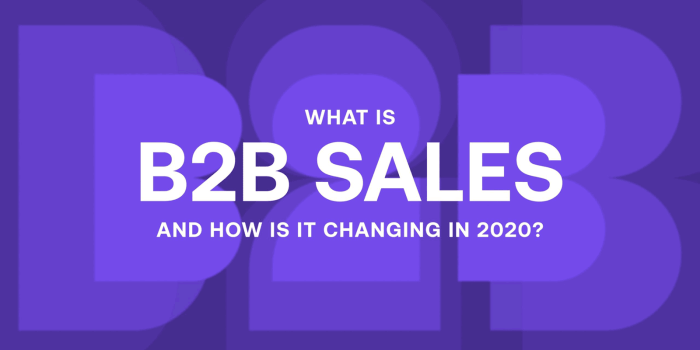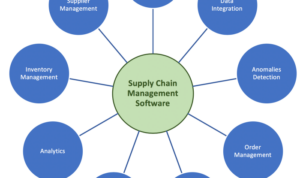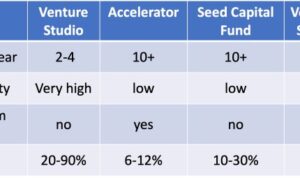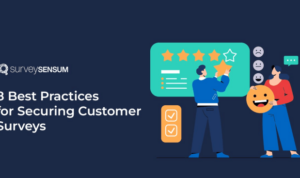Understanding B2B and B2C Sales sets the stage for delving into the intricacies of business transactions, offering a deep dive into the world of sales strategies and customer engagement with a fresh and vibrant twist.
Get ready to explore the differences between B2B and B2C sales, uncover unique challenges, and discover effective tactics that drive success in both realms.
B2B vs. B2C Sales: Understanding B2B And B2C Sales

In the world of sales, there are two main categories: B2B (Business-to-Business) and B2C (Business-to-Consumer) sales. While they both involve selling products or services, there are key differences that set them apart.
Fundamental Differences
- B2B sales involve selling products or services from one business to another, while B2C sales involve selling directly to individual consumers.
- The target audience for B2B sales is businesses, such as other companies, organizations, or institutions, while the target audience for B2C sales is individual consumers.
- In B2B sales, the buying process is typically longer and more complex, often involving multiple decision-makers and a focus on building long-term relationships. In contrast, B2C sales are usually more transactional and focused on individual needs and preferences.
Key Strategies
- In B2B sales, relationship-building and personalized service are crucial. Sales representatives often need to understand the specific needs and challenges of the businesses they are selling to, and tailor their approach accordingly.
- On the other hand, in B2C sales, marketing and branding play a more significant role. Companies need to create compelling messages and experiences that resonate with individual consumers and drive them to make a purchase.
- B2B sales often involve longer sales cycles and higher-value transactions, requiring a more consultative approach and a focus on delivering value over time. In contrast, B2C sales are typically more transactional and driven by factors like pricing, convenience, and emotional appeal.
Sales Process Variation
- In B2B sales, the sales process is usually more consultative and relationship-focused, involving multiple touchpoints and interactions with different stakeholders within the buying organization.
- Conversely, in B2C sales, the sales process is often more straightforward and transactional, with a focus on capturing the attention of individual consumers, addressing their immediate needs, and closing the deal quickly.
- B2B sales may involve negotiation, customization, and ongoing support services to meet the specific requirements of business clients, while B2C sales are more standardized and focused on delivering a seamless buying experience to individual consumers.
Understanding B2B Sales

In the world of business, B2B sales (Business to Business) involves selling products or services from one company to another. This type of sales process comes with its own set of unique challenges and strategies that differ from B2C sales.
Challenges in B2B Sales, Understanding B2B and B2C Sales
- Longer Sales Cycles: B2B sales typically have longer sales cycles compared to B2C sales due to the complexity of decision-making processes in businesses.
- Multiple Decision-Makers: In B2B transactions, there are often multiple stakeholders involved in the decision-making process, making it more challenging to close a deal.
- Customization Requirements: B2B customers often have specific and unique requirements that need to be addressed, requiring a more tailored approach.
Importance of Relationship-Building
Building strong relationships with clients is crucial in B2B sales. Trust and credibility play a significant role in the decision-making process for businesses. By nurturing relationships with clients, sales professionals can create long-term partnerships that lead to repeat business and referrals.
Effective B2B Sales Tactics
- Personalized Approach: Tailoring solutions to meet the specific needs of each client can significantly increase the chances of closing a deal in B2B sales.
- Networking: Building a strong network within the industry can open up new opportunities and referrals for B2B sales professionals.
- Content Marketing: Providing valuable and informative content can help establish credibility and attract potential B2B clients.
Differences in B2B Sales Cycles
- Complex Decision-Making: B2B sales cycles involve multiple decision-makers who need to align on the purchase, leading to a longer and more intricate process.
- Relationship Focus: B2B sales cycles prioritize building and maintaining relationships with clients over time, as trust and credibility are key factors in closing deals.
- Customization and Negotiation: B2B sales often require customization of products or services to meet the specific needs of each client, leading to more negotiation and collaboration throughout the sales cycle.
Understanding B2C Sales
Customer experience plays a crucial role in B2C sales as it directly impacts brand loyalty and repeat purchases. Providing a seamless and positive experience for customers can lead to increased sales and customer satisfaction.
Significance of Customer Experience in B2C Sales
Customer experience in B2C sales is key to building long-lasting relationships with consumers. It involves every interaction a customer has with a brand, from browsing products online to receiving after-sales support. A positive customer experience can result in repeat business, word-of-mouth referrals, and brand advocacy.
- Personalized shopping experiences tailored to individual preferences
- Efficient customer service and support
- Easy-to-use website and mobile interfaces
- Quick and hassle-free checkout process
Role of Emotion and Impulse in B2C Purchasing Decisions
Emotions and impulses play a significant role in B2C purchasing decisions, often driving consumers to make impulse buys based on how they feel in the moment. Marketers leverage emotions through storytelling, visuals, and branding to create a connection with consumers and influence their buying behavior.
Emotionally resonant advertisements can trigger impulse purchases.
Successful B2C Marketing Strategies
Successful B2C marketing strategies often focus on building brand awareness, engaging with customers on social media, and creating compelling content that resonates with their target audience. Some examples include:
- Social media campaigns that encourage user-generated content
- Influencer partnerships to reach new audiences
- Email marketing with personalized recommendations
- Loyalty programs that reward repeat customers
Comparison of Customer Journey in B2C Sales to B2B Sales
The customer journey in B2C sales tends to be shorter and more emotion-driven compared to B2B sales. B2C customers often make quicker purchasing decisions based on personal preferences and emotions, while B2B customers follow a more structured and rational decision-making process influenced by business needs and ROI considerations.
Sales Techniques in B2B and B2C
In both B2B and B2C sales, mastering effective sales techniques is crucial for success. Let’s delve into the key aspects that differentiate these two types of sales approaches.
Importance of Product Knowledge
Having a deep understanding of the products or services being offered is essential in both B2B and B2C sales. In B2B sales, knowing the intricate details of the product can help build credibility and trust with potential clients. On the other hand, in B2C sales, product knowledge allows salespeople to effectively communicate the benefits and features to individual customers, helping them make informed purchasing decisions.
Communication Skills in B2B Sales
Effective communication skills are vital in B2B sales transactions. Sales professionals need to be able to articulate complex information clearly and concisely, build rapport with decision-makers, and negotiate deals successfully. Active listening, empathy, and the ability to tailor the message to the specific needs of the business are key communication skills required for successful B2B sales.
Strategies for Lead Generation
In B2B sales, lead generation strategies often involve targeted outreach to key decision-makers within companies through methods like cold calling, email campaigns, and networking events. On the other hand, B2C lead generation focuses on reaching a wider audience through digital marketing, social media advertising, and promotions to drive consumer interest and engagement.
Role of Data and Analytics
Data and analytics play a crucial role in optimizing both B2B and B2C sales processes. By analyzing customer behavior, market trends, and sales performance data, businesses can make informed decisions, identify opportunities for growth, and personalize their sales approach. Utilizing data-driven insights can lead to more effective targeting, higher conversion rates, and increased revenue in both B2B and B2C sales environments.





